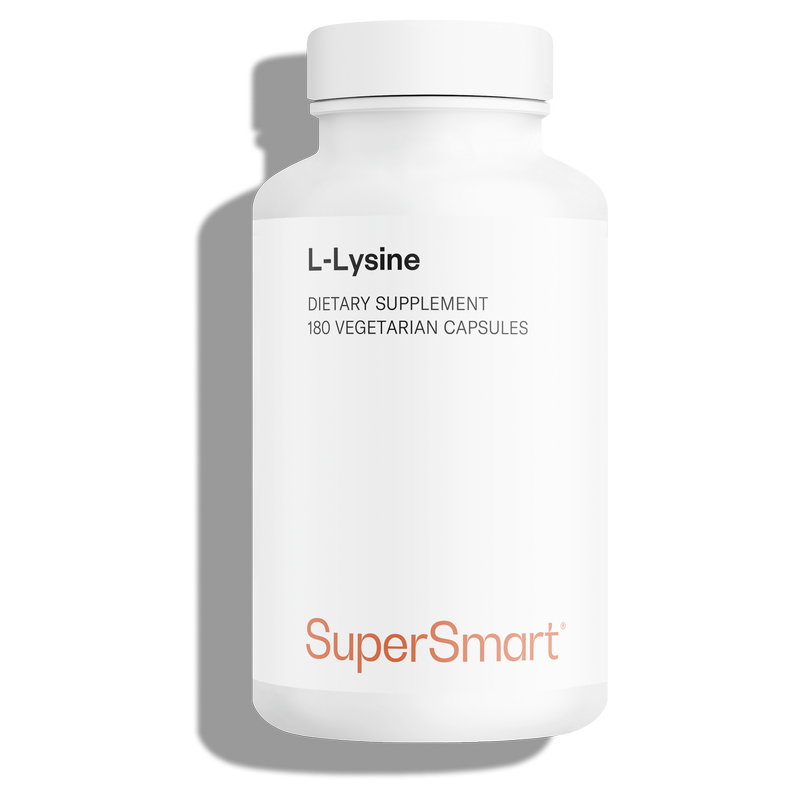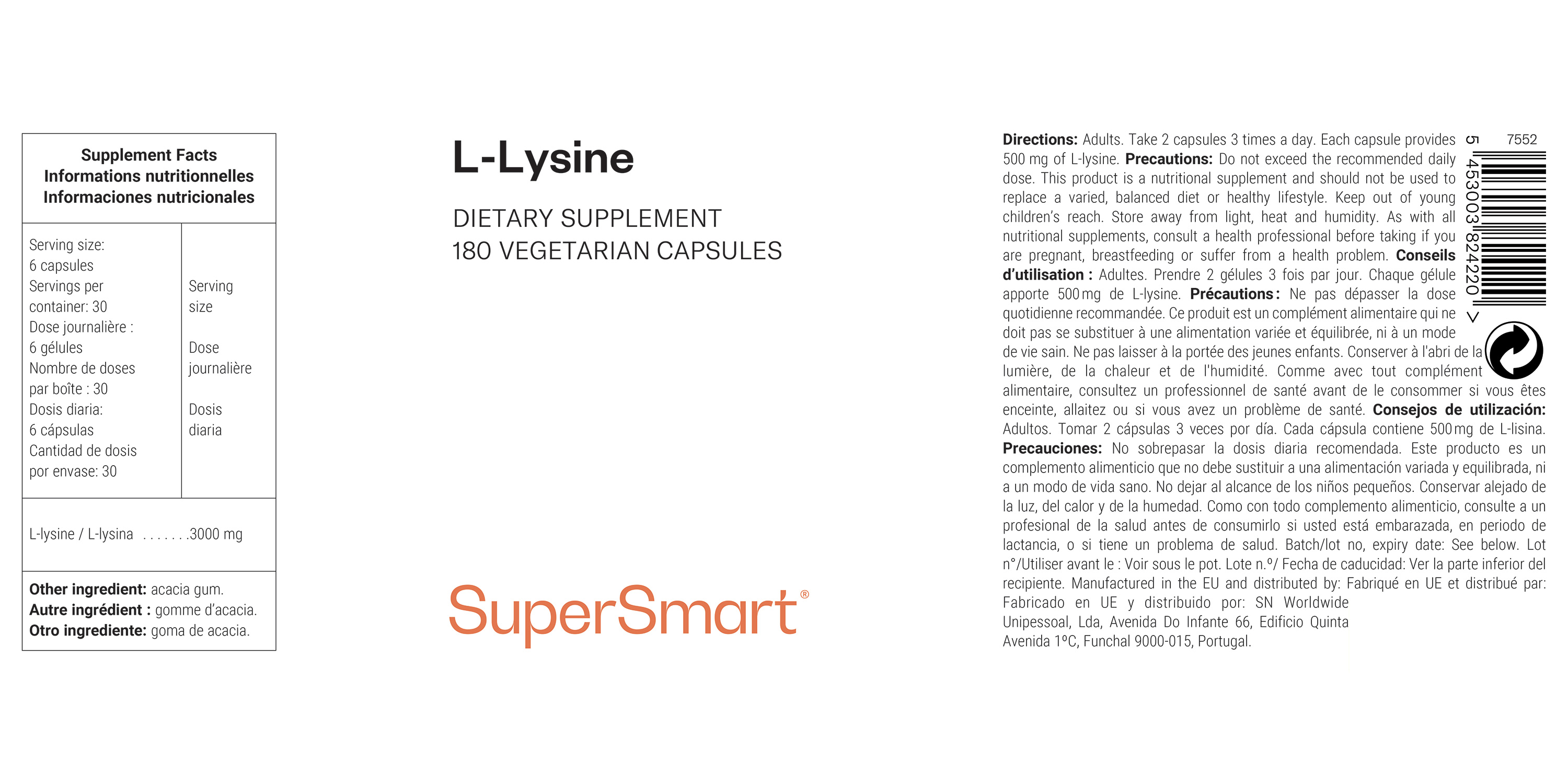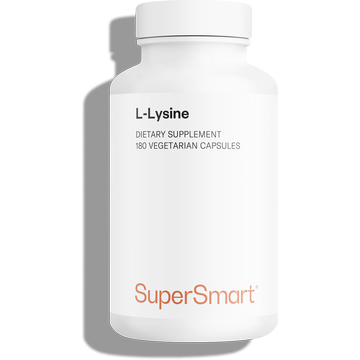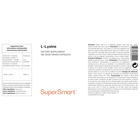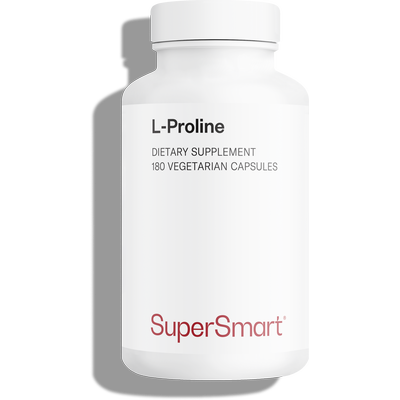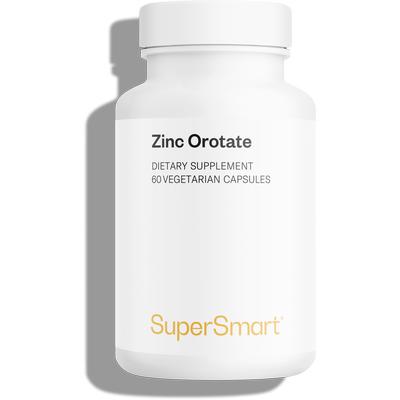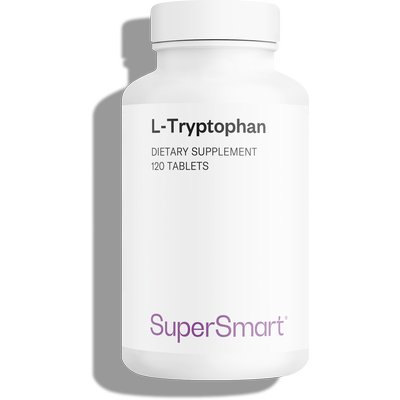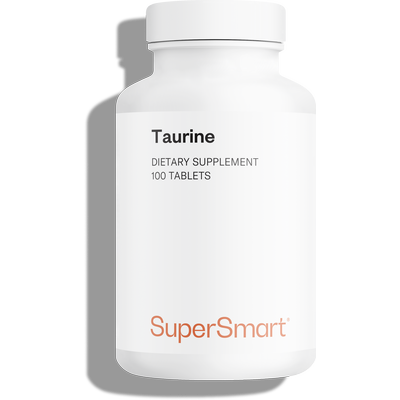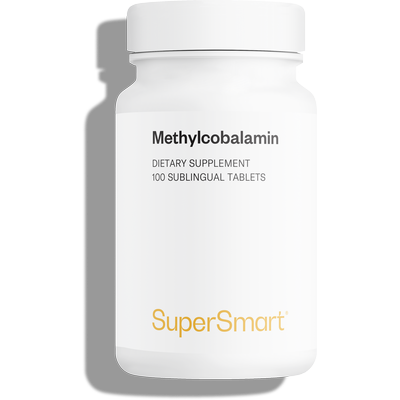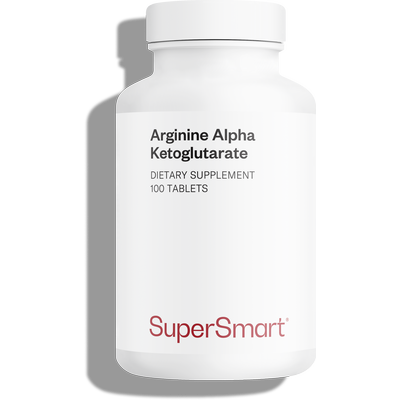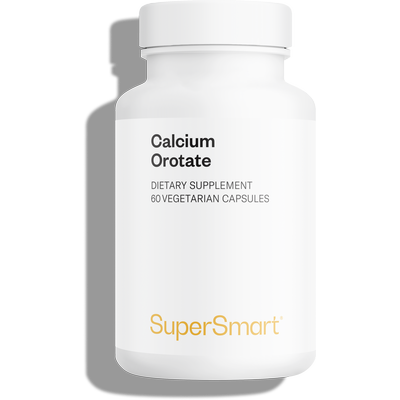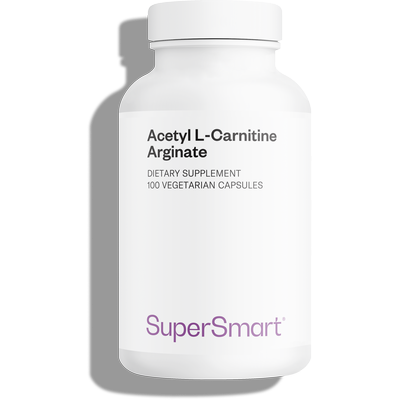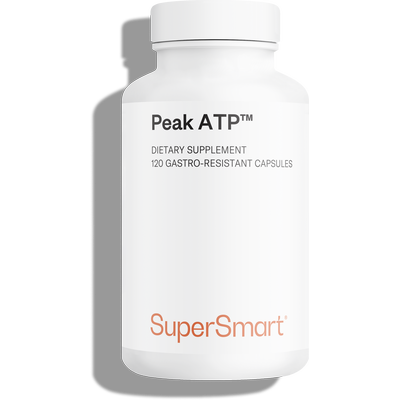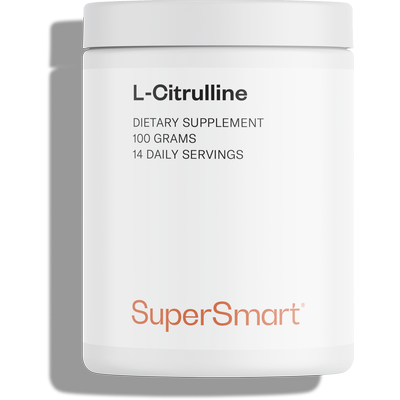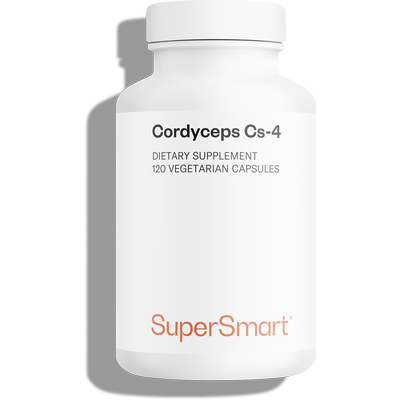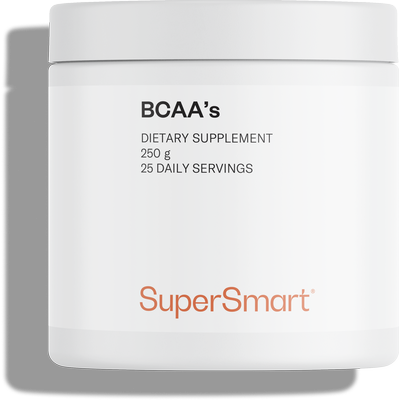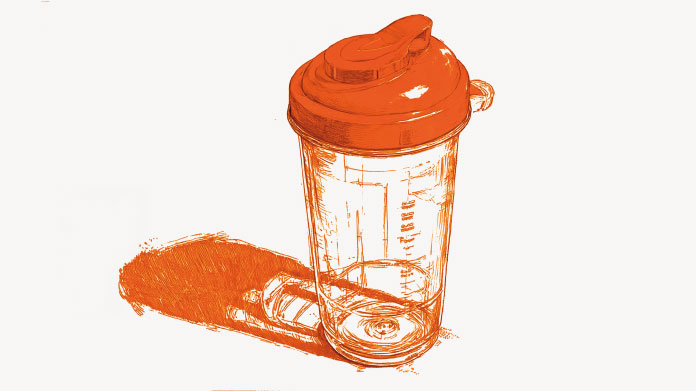Complete your selection
L-Lysine is a supplement containing lysine in its levorotatory isomeric form, the only form the body really needs. It is one of the most important essential amino acids for human health.
What exactly is lysine?
L-Lysine (the symbol of which is Lys or K) is an amino acid which the body cannot produce but which is nonetheless essential to health. Like all amino acids, L-lysine has two functional groups, an amine group (NH2) and a carboxyl one (COOH). It is ketogenic only, meaning it is converted solely into ketone bodies (not glucose). It is found in the diet, particularly in grains and pulses.
L-Lysine is able to cross the blood-brain barrier and reach a part of the brain where it is metabolised into α-aminoadipic acid, which can interact with a number of neuroreceptors (1).
What is an essential amino acid?
There are eight essential amino acids: isoleucine, leucine, lysine, methionine, phenylalanine, threonine, tryptophan and valine. They’re termed ‘essential’ because they cannot be produced by the body but are nonetheless crucial for good health. Lysine and threonine are without doubt the most important (2).
The only way of meeting our needs for them is through diet and supplementation.
What is in L-Lysine
Any questions?
Our team of nutrition experts and scientists has the answers.
Inadequate lysine intake can adversely affect noradrenaline activity in the hypothalamus, a structure of the central nervous system. It can induce symptoms of protein deficiency, such as a decrease in the body’s overall resistance and problems with growth.
Insufficient intake is more common among socioeconomically disadvantaged populations.
In humans, normal plasma values for lysine are between 100 and 250 µmol/L (3).
Taking L-lysine is considered safe. It has been used as a dietary supplement for several decades, with no evidence of side-effects, including at high doses (4).
However, you should not supplement with lysine at the same time as arginine as they compete with each other in the body. Similarly, lysine supplementation is not recommended if you are taking aminoglycoside antibiotics.
It is, however, possible to combine lysine with other amino acid or protein supplements, namely:
- BCAA, a complex containing three essential branched-chain amino acids (leucine, isoleucine and valine) ;
- 3-Creatine, a powerful blend of three active forms of creatine;
- Cordyceps sinensis, a natural extract standardised to 7% cordycepic acid and 0.2% adenosine, the most widely-studied active ingredients of this fungus.
The minimum amount recommended for adults is 30mg/kg, that’s 2700mg for someone weighing 90 kilos. Each vegetarian capsule of our supplement delivers 500mg of L-lysine. We therefore recommend taking between 6 and 12 capsules a day as required, or as advised by your therapist.
Good dietary sources of lysine are high-protein foods such as eggs, meat, beans, peas, cheese and certain fish such as sardines and mackerel. The amount of lysine per gram of protein is also important: foods with a lysine content of less than 5% per gram of protein are not considered good sources. These include chocolate, whole wheat, white flour, peanuts, soya and wheatgerm.
This product’s capsules are made of pullulan, a natural polysaccharide obtained by fermenting tapioca or corn. Pullulan contains no animal ingredients and provides an excellent barrier to oxygen, helping to preserve the integrity of the capsule’s ingredients. It is also an eco-friendly alternative to synthetic materials.
november 29 2025
october 7 2025
Bonjour ! Je prends du L.Lysine depuis 3-4 mois pour soigner véritablement la cause de mes crises d’herpès récurrentes. Jusqu’à présent, je prenais très vite un antibiotique pour calmer la crise qui est fort désagréable. En 3 mois, je n’ai eu qu’une petite crise qui a été enrayée par le L.Lysine. Je n’ai pas pris l’antibiotique habituel. J’étais très contente. Je recommande fortement L.Lysine à toutes les personnes qui ont des infections. Cordialement. AP
Hello!
I've been taking L.Lysine for 3-4 months to truly treat the cause of my recurrent herpes outbreaks. Until now, I would quickly take an antibiotic to calm the outbreak, which is very unpleasant. In 3 months, I've only had a small outbreak that was stopped by L.Lysine. I didn't take the usual antibiotic. I was very happy.
I highly recommend L.Lysine to everyone who has infections.
Best regards.
AP
 see the translation
Translated by SuperSmart - see the original
see the translation
Translated by SuperSmart - see the original
june 5 2024
Très bon produit , je recommande.
Very good product, I recommend it.
 see the translation
Translated by SuperSmart - see the original
see the translation
Translated by SuperSmart - see the original
march 3 2024
............
I'm sorry, but it seems like the original text you provided is incomplete or missing. Could you please provide the full text that needs to be translated?
 see the translation
Translated by SuperSmart - see the original
see the translation
Translated by SuperSmart - see the original
march 4 2023
À associer à vitamine c liposomiale pour retarder les plaques d’atherome .
To be combined with liposomal vitamin C to delay atheroma plaques.
 see the translation
Translated by SuperSmart - see the original
see the translation
Translated by SuperSmart - see the original
Need help?
You may also like
of experience
your money back
##montant## purchase

